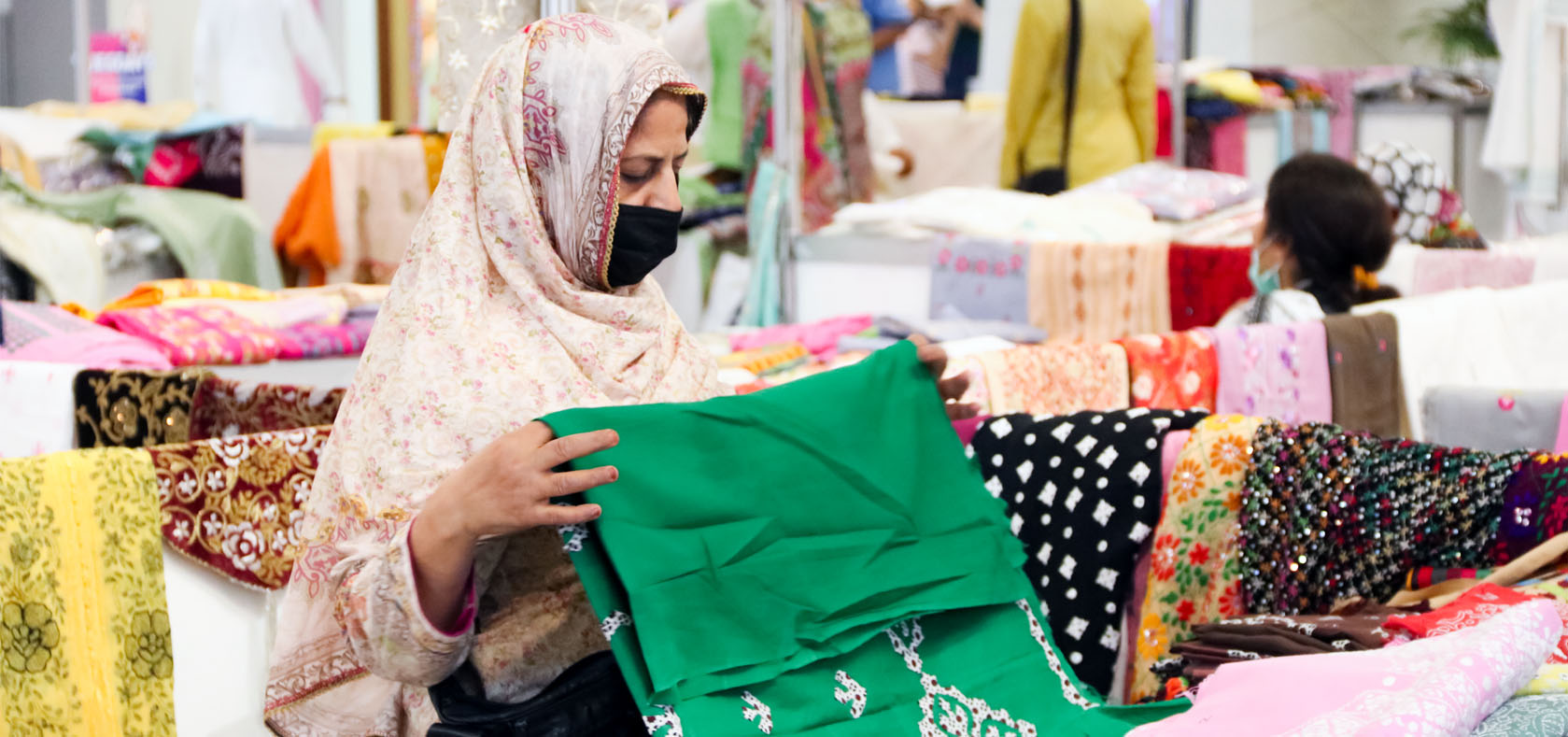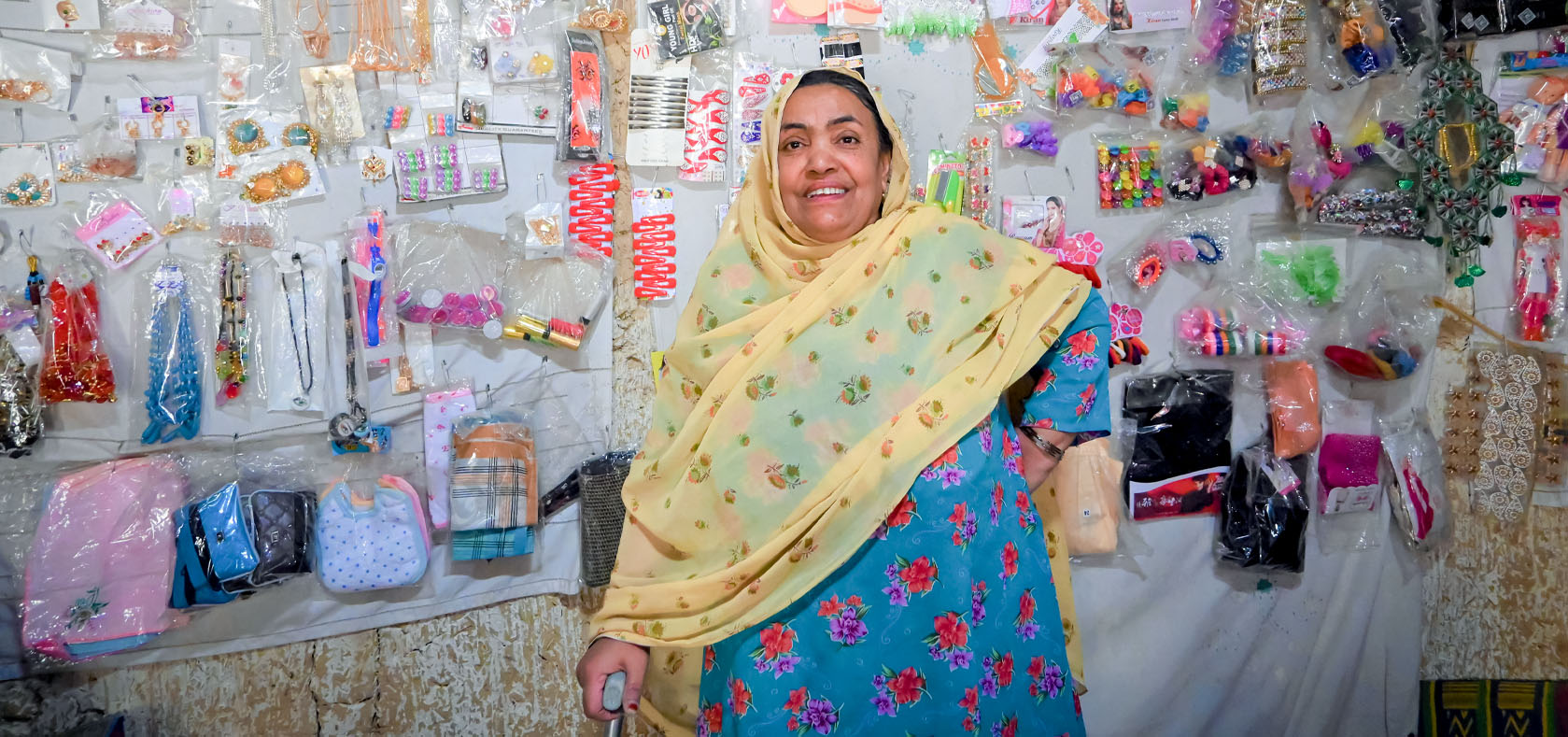Economic Empowerment and Sustainable Livelihood

The economic empowerment of women in Pakistan is constrained by a myriad of factors, including limited mobility, restricted access to and acquisition of skills, informal business management practices, and lack of access to markets, technology and finance. Women account for a mere 22.63 per cent of the labor force while men make up 84.79 per cent, and on average, a Pakistani woman’s income is 16.3 per cent of a man’s income. Of the 5.26 million working in the informal sector in Pakistan 81 per cent are women. Even though this contribution accounts for 65 per cent of the PKR 400 billion (USD 2.8 billion) in the informal economy of Pakistan, women earn just PKR 3,000-4,000 (USD)per month and as a result face multidimensional vulnerabilities including low-income security, poor nutrition, occupational health issues, an absence of social protection and high economic vulnerability in times of crisis.
Investing in women’s economic empowerment sets a direct path towards gender equality, poverty eradication and inclusive economic growth. UN Women Pakistan works to create an enabling environment where women can benefit from decent work in a harassment-free workplace and become active contributors to and beneficiaries of economic and social development. While there is a special focus on the most excluded and marginalized, residing in rural, underdeveloped and hard to reach areas particularly microenterprises, home
UN Women Pakistan takes a multi-faceted approach towards addressing the issue of women’s economic empowerment. This approach has yielded remarkable results and a multitude of women have benefited from tailored interventions.
- Interventions at the policy level aim at making laws and policies gender-responsive, and supporting the drafting and implementing of laws and policies that cater to the economic mainstreaming of women for different segments of the population. UN Women Pakistan’s efforts have led to the enactment of the Provincial Home-based Workers (HBWs) Laws, the Provincial Persons with Disabilities Act and regulations relating to protection from harassment in the workplace. UN Women partners with the federal government’s Benazir Income Support Programme (BISP) overseen by the Poverty Alleviation and Social Safety Division, and influences policies on labor protection, social security coverage, pension and health insurance schemes.
- UN Women works with a wide range of stakeholders to ensure access to services and support and to address the economic and livelihood needs particularly in times of crises, both response and recovery phases. This includes basic citizen registration (Computerized National Identity Cards: CNIC), social security benefits and legal support in labor courts. There is compelling evidence that possession of a CNIC provides women and their households with access to many facilities and services, for example, access to government services and guarantees entitlements, food rations, healthcare, voting rights, and education for their children and more importantly, it enhances their confidence, self-worth, self esteem and dignity.
- UN Women empowers women at the community level to increase their employability and livelihood. Development of need-based, market-oriented technical training opportunities for women and girls through a combination of different private and public sector training institutions and technical resource persons are a source of developing their livelihoods and expanding existing home-based work and establishment of women-owned businesses. This is done through capacity building programs on marketable skills, entrepreneurship, financial literacy, digital enablement and business development, and facilitating linkages to the market and high-value supply chains. The programs equip women with necessary skills and innovative technologies to become adaptive to shifting regulatory mandates and industry trends
- The potential role of women led businesses linked to supply chains of private sector companies is growing. The diversity and inclusion principles upheld by most of the private companies need to reflect in the vendors selected by them which help them to be more agile and resilient. Engaging with civil society and the private sector forms a key part of the solution and these partnerships are leveraged for job creation, access to capital and finance, digital inclusion, and increasing awareness and avenues for women to access productive resources. UN Women Pakistan greatly leverages the Women Empowerment Principles (WEPs) so as to encourage and support private sector organizations to increase gender parity, formulate gender-responsive human resources policies to enable harassment-free working environment, and invest in building pipelines of female talent.
